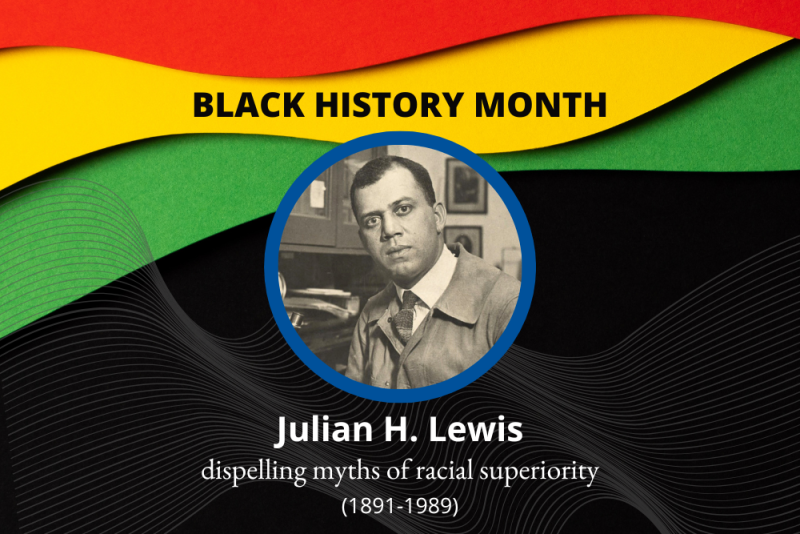
This week we highlight Julian H. Lewis.
Julian H. Lewis accomplished many significant “firsts” in his lifetime and is known to be one of the earliest African Americans in history to hold both an MD and a PhD.
Lewis was the son of two educators who were born into and later liberated from slavery. He earned his PhD in physiology and pathology from the University of Chicago, graduating Magna Cum Laude in a year and a half. He then received his MD from Rush Medical College and then joined the UChicago faculty, becoming an assistant professor in 1923
A noted expert in immunology at UChicago, Lewis received a John Simon Guggenheim Memorial Foundation fellowship to study in Switzerland. The work of Dr. Lewis helped expose the underlying racial organization of early twentieth-century medicine and challenged the prevailing racial theory. His groundbreaking research on race and blood typing led to his publishing of Biology of the Negro in 1942. It was the first book of its kind to objectively use science to dispel the myth of a superior race. An examination of Lewis's critiques and his research sharpens questions about the development of the concept of "normal" as equal to the white majority in the human sciences and a related tendency in twentieth-century medicine to conflate this difference with pathology.
He left the University of Chicago in 1943, and continued his career at Provident Hospital, the first black-owned and operated hospital in the United States. Lewis held several other positions from 1952 until his death in 1989.
Dr. Lewis’ helped create network of support at a time when many students were confronting racism. As an activist and mentor, Lewis supported and championed the early careers of several prominent African Americans at UChicago, from dancer Katherine Dunham to the late Prof. James E. Bowman, father of Valerie Jarrett, senior advisor to President Barack Obama.
A member of Sigma Pi Phi Fraternity, Dr. Lewis passed away on March 6, 1989 in Chicago at the age of 97.